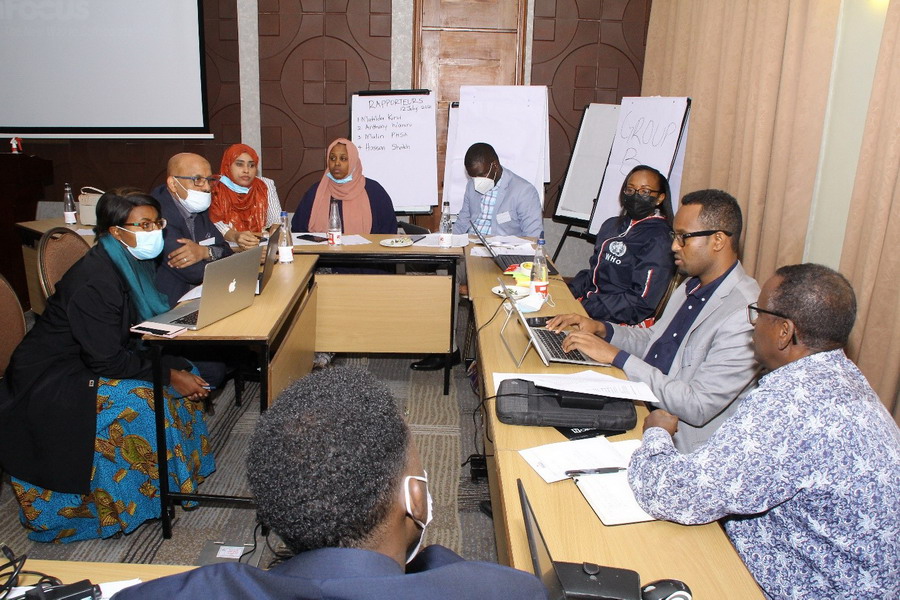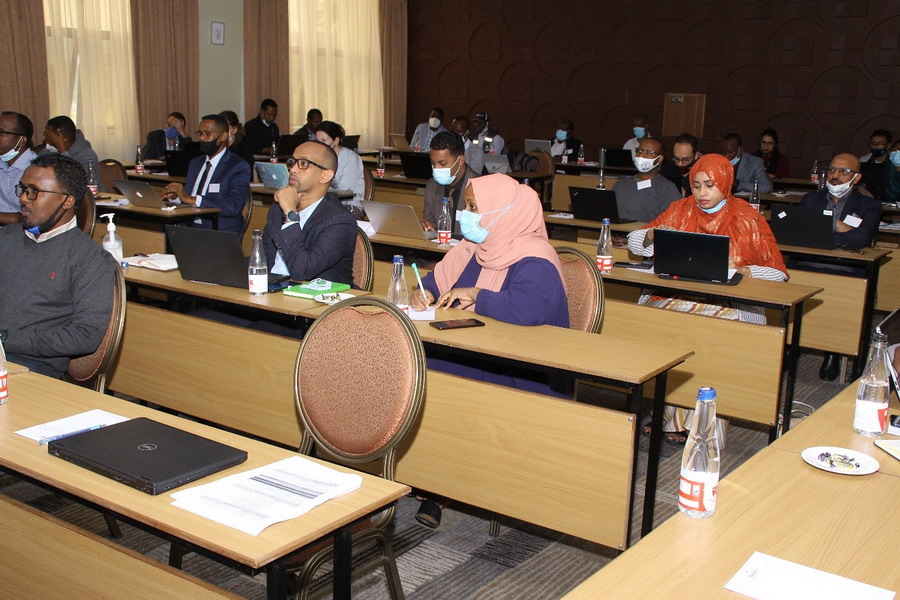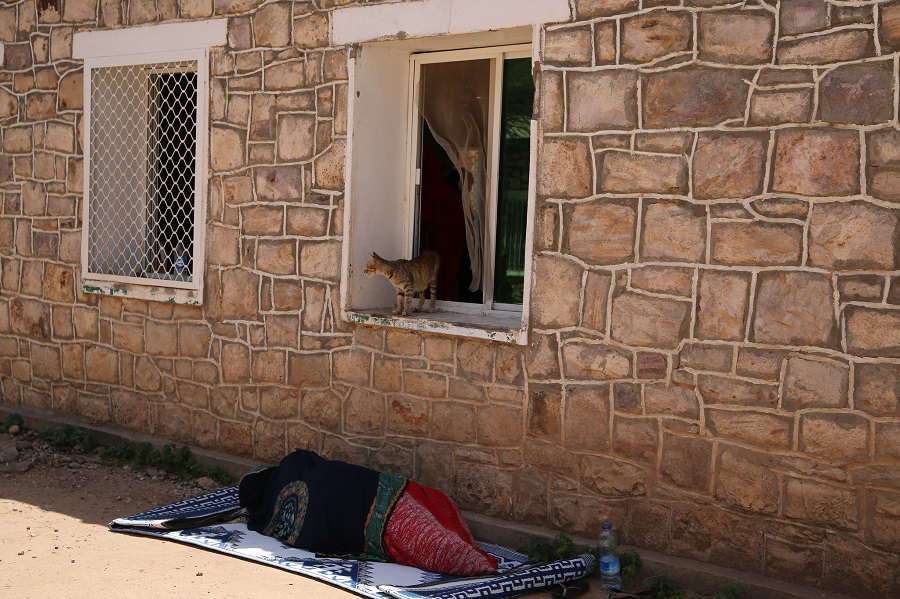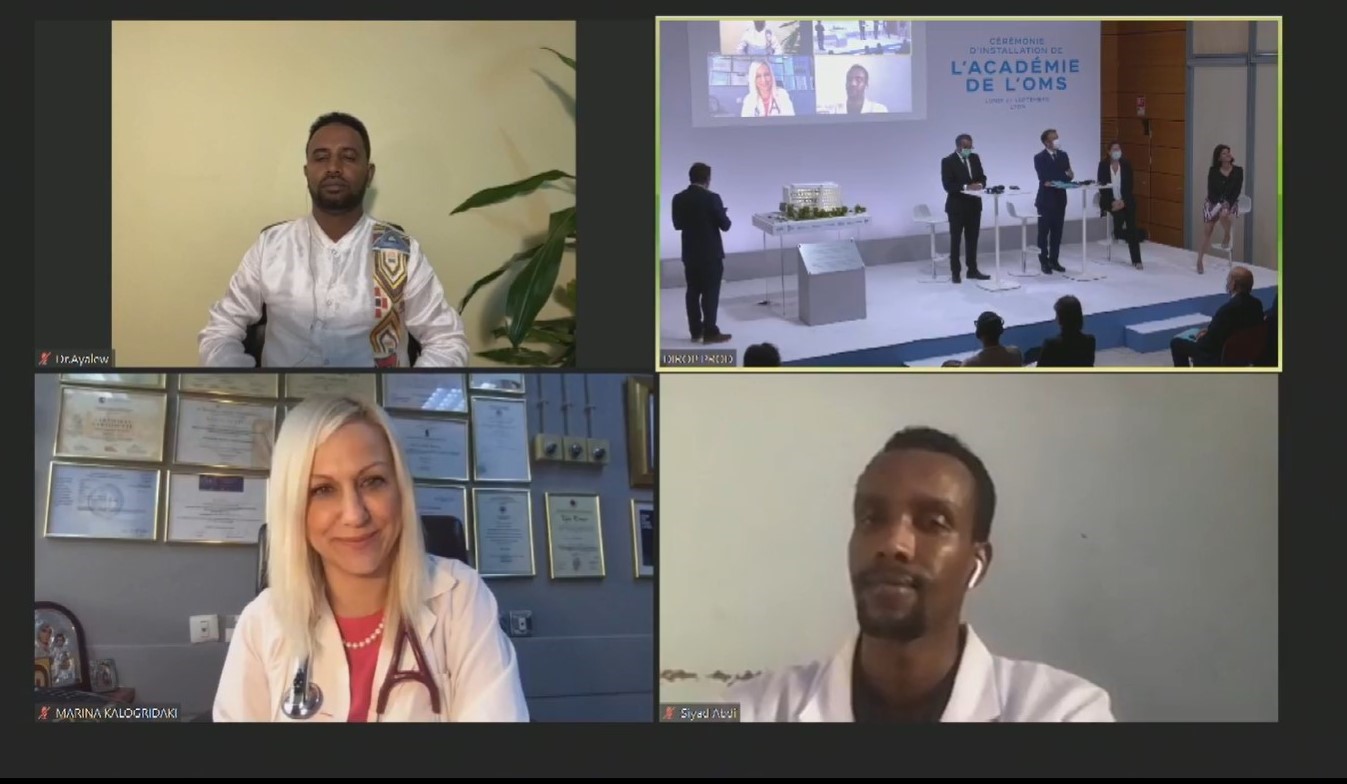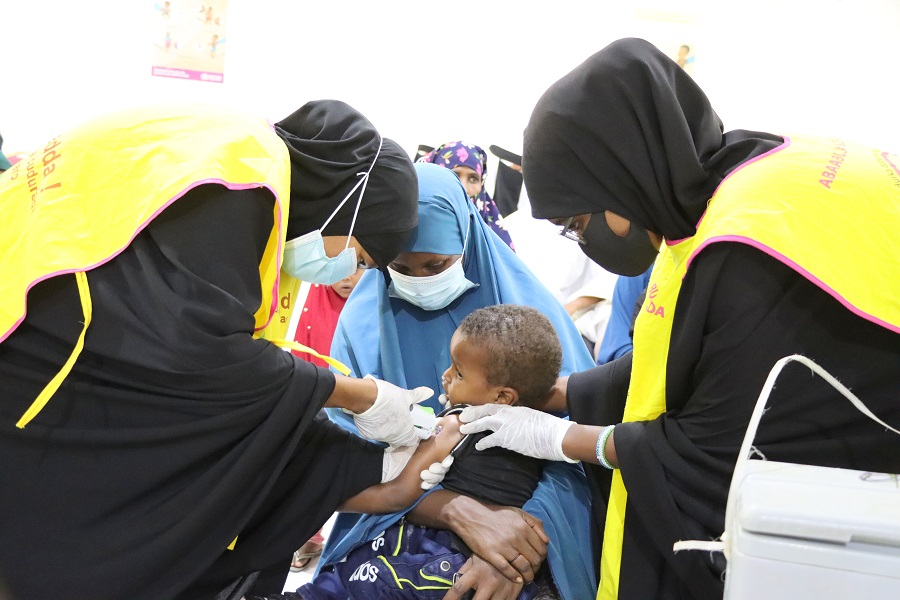
Mogadishu, 24 October 2021 – On World Polio Day 2021, the Federal Government of Somalia, World Health Organization (WHO), United Nations Children’s Fund (UNICEF) and other key partners from the Global Polio Eradication Initiative (GPEI) renewed their efforts to deliver on the promise to protect every Somali child from polio.
Over the years, Somalia has made substantial progress in polio eradication. The country stopped the transmission of wild poliovirus in 2013 and prevented its subsequent importations. However, outbreaks of other strains of poliovirus still pose a threat to unvaccinated children.
In March 2021, after 28 months, Somalia’s polio programme and partners successfully stopped an outbreak of a rare strain of circulating poliovirus type 3 (cVDPV3). Currently, an outbreak of circulating poliovirus type 2 (cVDPV2), detected for the first time in Somalia in the environment in November 2017 and in a child on 11 May 2018, continues to threaten under-vaccinated children. So far, 23 children have been infected, with the last reported case detected in October 2021.
Somalia’s polio programme is foundational to the health care system of the country and is a critical asset for disease surveillance and primary health care. With an extensive network of over 149 national and subnational polio health workers, present in every district across the country, the programme has provided immediate, urgent support to other outbreaks and public health emergencies.
With a vision to strengthen Somalia’s health systems while optimizing existing resources, the country is rolling out a polio transition plan capitalizing on the existing network of health workers to support other priority health care functions and streamline health service delivery. These efforts will ensure the country makes progress towards universal health coverage.
Tapping into new, rigorously tested innovations to respond to and prevent polio outbreaks swiftly and robustly, Somalia is at the forefront of countries to qualify for the use of a next-generation polio vaccine – known as novel oral polio vaccine (nOPV2). This vaccine protects children, particularly under-immunized ones, from the emergence of polio strains, as is genetically more stable than the monovalent oral polio vaccine (mOPV2), which is why it is being used as the “vaccine of choice” to address cVDPV2 outbreaks. Somalia is ready to use nOPV2 vaccines as soon as they are made available, which would be a significant development for polio eradication efforts.
In September 2021, the polio eradication programme in Somalia introduced fractional-dose inactivated polio vaccines (fIPV) in 5 districts, reaching a total of 80 916 children under the age of 5. This pilot project was another innovative milestone for the country, particularly as a fraction of this vaccine offers a specific kind of immunity that is similar to one full dose of inactivated polio vaccine (IPV) in children previously immunized with oral polio vaccine (OPV). The use of fIPV is critical in responding to an outbreak such as the one in Somalia.
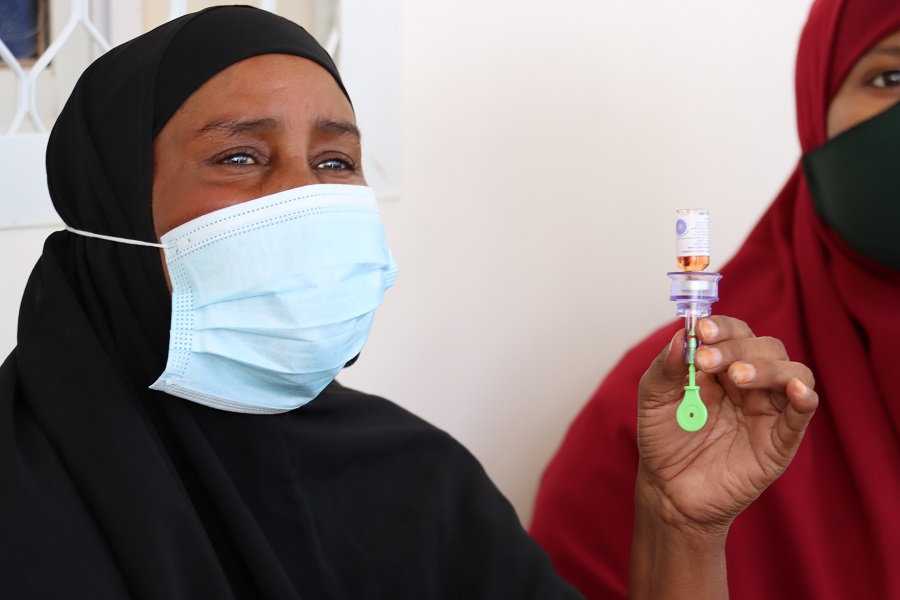
“We have come very far in the fight against polio,” said Dr Fawziya Abikar Nur, Minister of Health and Human Services, Somalia. “Despite this progress, we still need to ensure threats such as COVID-19 and any future pandemics and emergencies, and other logistical challenges do not reverse any gains made by the polio eradication initiative. On World Polio Day, we are taking this opportunity to renew our promise to every Somali child, to do all we can to keep them free from polio.”
Since the COVID-19 pandemic began, Somalia has conducted 2 nationwide and 7 subnational door-to-door polio campaigns, typically targeting around 3 258 352 children under the age of 5 per campaign across the country, and 3 small-scale campaigns to target children living in high-risk hotspots.
“WHO remains committed in its resolve to protect Somali children from polio and other vaccine-preventable diseases,” said Dr Mamunur Rahman Malik, WHO Representative to Somalia. “Every milestone we have witnessed so far, including the new ones such as the introduction of a new, powerful polio vaccines, has years of planning, research and collaboration, coupled with the unwavering support from donors, dedication of health workers and conviction of communities and caregivers behind it. We would like to thank each one of our stakeholders for their commitment.”
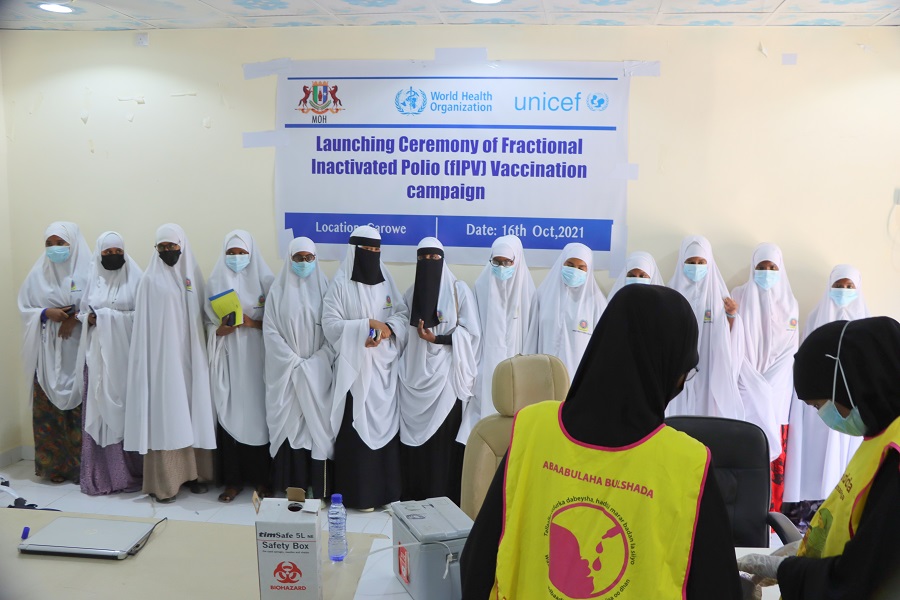
“Since the first national campaigns in 1997, a lot has been achieved to save Somali children from preventable paralysis of poliomyelitis,” said UNICEF Representative Mohamed Ayoya. “However, large numbers of children in Somalia do not receive immunization and other necessary health services. On this World Polio Day, we must commit ourselves to ensuring that polio no longer poses a threat to Somali children. No child should be left behind.”
For additional information, please contact:
Khadar Hussein Mohamud
Head of Coordination and Communication
Federal Ministry of Health
This e-mail address is being protected from spambots. You need JavaScript enabled to view it
, +252 615 602 637
Fouzia Bano
WHO Chief of Staff ai, Communications Officer
This e-mail address is being protected from spambots. You need JavaScript enabled to view it
+252 619 235 880
Eva Hinds
UNICEF Communication Manager
This e-mail address is being protected from spambots. You need JavaScript enabled to view it
+252 613 642 635
Notes to editor:
For more information on novel oral polio vaccine (nOPV2), kindly see: nOPV2 – GPEI (polioeradication.org)
Additional information on the fractional dose IPV can be found here: Fractional dose IPV shown effective to stop outbreaks – GPEI (polioeradication.org).
The pilot project on fractional dose IPV in Somalia can guide national decision-making on the use of this vaccine in the country, as a scale-up of fIPV can be incorporated into routine immunization programmes to make the most of IPV stocks available, in view of the global shortage of IPV, and to increase immunization coverage of IPV in Somalia.





